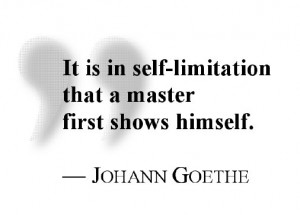 There are rules for writing a song to be played on radio.
There are rules for writing a song to be played on radio.
Some of those rules are obvious: a song shouldn’t be shorter than 2 1/2 minutes and shouldn’t be longer than 4 minutes. And generally you need an intro/verse/chorus/verse/chorus/bridge/chorus format.
There’s a plan, a form to get played on radio.
We willingly follow the rules for songwriting to communicate for the format called radio because we want people to hear our music and our message, we want to influence people, and (sometimes) we want to earn a living.
But most artists don’t know there are rules to communicate from another format called the stage. When it comes to the stage, most artists operate in ignorance and generally just “wing it.” Great athletes don’t “wing it.” They understand they don’t get four strikes in baseball or five downs in football. Rules bring a format and a context for the great athletes to shine!
Rules don’t limit! They create freedom for an artist to develop completely within the context of the rules.
A guitarist, for example, is limited within the context of his guitar, his amp, and so on. But the great ones with talent, imagination, experimentation, and a dedication to the process of growth, master the instrument and its limitations.
It’s not a lack of rules that makes you an artist. And the sign of a great artist isn’t someone who only follows the rules. The great artist is the one who understands the rules, then passionately and professionally applies him or herself to complete expression within the rules.
It’s working within the limits that mastery truly reveals itself (to paraphrase Goethe)!
So what are the rules onstage? Well, here’s a short clip of me teaching a few rules about movement to a worship team in New Zealand:
The best place to learn those rules of being onstage is from my teaching DVDs, like Expressive Worship. (There, I said it!)
I don’t want to sound like a commercial, but so many times we work with artists or bands or praise teams, and a lot of time is wasted as we have to teach them how to walk from one place onstage to another without looking goofy.
In those situations I have to decide: with the time and energy and money they’re giving me, do I teach them how to walk or do I punt? I’m limited with what I can do because they haven’t done the preparation they should have done. The kind of preparation that people can actually do at their own house on their own time!
Just like learning to play a scale, they can learn these basics at home. And that’s the first step to being great and not “winging it.”








Hi Tom
One thing I remember hearing in music theory class long ago was “Learn the rules well so you know what you are doing when you break them”
I think that applies here as well.
If we never learn the rules, the movement, the tools we have, then we are just blindly hoping. If we learn how to walk, run, move a stand, handle a mic and how it works with a voice close up and more distant, how to raise the neck of a guitar for a purposeful emphasis, the angles you teach, all that stuff, then we are never comfortable enough to take chances. If we never learn the rules then we don’t realize the best reasons and ways to break them. We don’t even have a clue when that is happening. That falls into the winging it category and we may even get it right here or there by accident but we don’t know why and repeating it is tough. We don’t know what we did.
The guitarists that amaze us learned the rules first, and then they had this crazy idea of breaking out of the norm and trying something else, and our jaws dropped. The drummer who learned to hold down a strong back beat and then wondered what timing would be like to add that extra beat every few measures on the cymbal, how cool did that turn out.
Learning the rules doesn’t limit us at all. It teaches us and then frees us to break them with wisdom. I hope this makes sense. Just applying my theory lesson to it all!
Jim